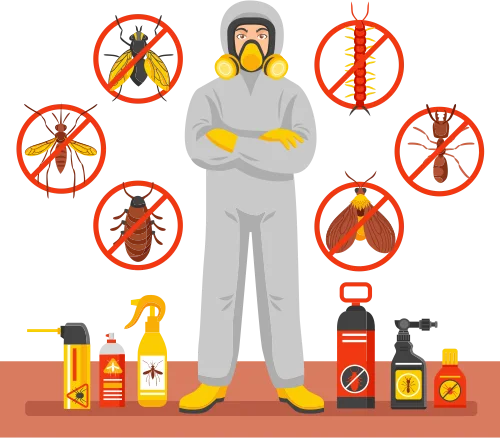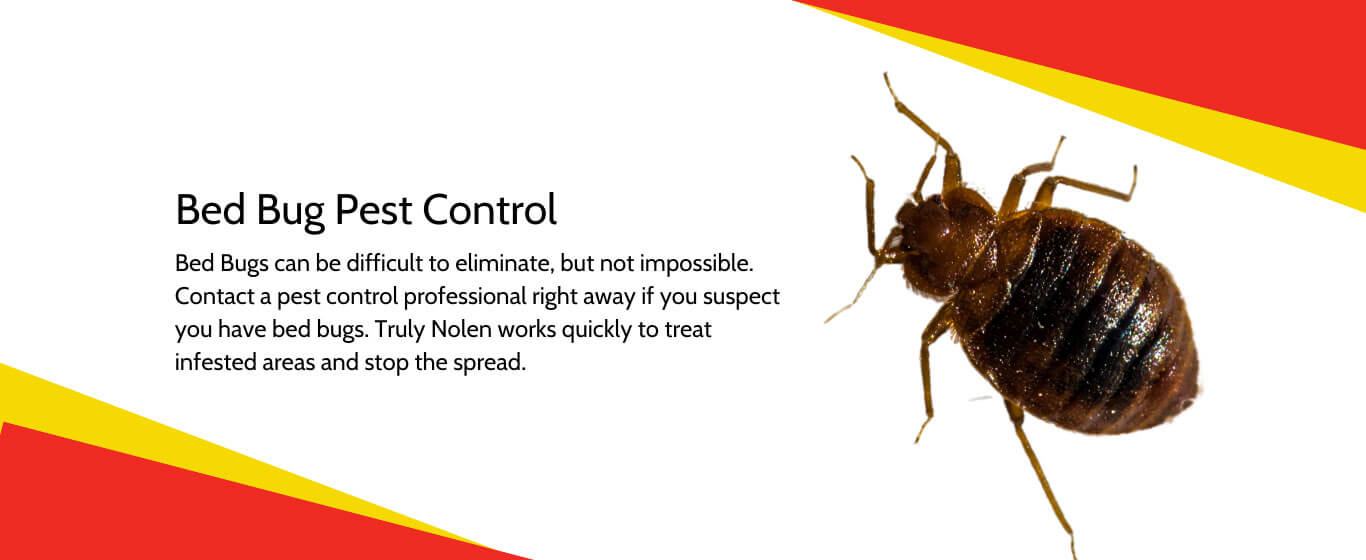Safe and Reliable Parasite Control for Lasting Security
Reliable pest administration calls for a complex technique that stabilizes eco-friendly integrity with the need for efficient pest reductions. The nuances of these approaches may not be immediately clear, triggering a more detailed exam of the techniques that can lead to sustainable pest control end results.
Understanding Parasite Control Approaches
Insect control incorporates a selection of techniques aimed at managing and getting rid of undesirable insects and rats that can endanger both wellness and residential property. Understanding these approaches is crucial for efficient insect management.
The primary groups of pest control methods consist of mechanical, organic, and chemical methods. Mechanical methods involve physical barriers and traps to stop bug access and capture unwanted varieties. Utilizing displays on home windows or employing sticky traps can substantially reduce parasite populations without introducing dangerous substances - exterminator coquitlam.

Chemical bug control is typically the most identified approach, using pesticides to eliminate bugs. These chemicals can be effective however need to be used with caution to prevent damaging results on non-target species and the setting.
Advantages of Eco-Friendly Solutions
Just how can environment-friendly services change pest control techniques? The adoption of eco-friendly parasite control techniques supplies many advantages, considerably boosting the effectiveness and safety and security of bug administration.

One more benefit is the positive impact on neighborhood biodiversity. Environment-friendly solutions are designed to target specific pests while protecting helpful bugs and wild animals, advertising a well balanced ecological community. This strategy straightens with the growing customer demand for lasting techniques, improving the track record of insect control suppliers.
Integrated Bug Management Methods
The application of eco-friendly remedies naturally leads to the adoption of Integrated Pest Management (IPM) strategies, which even more enhance pest control efficacy. IPM is a holistic approach that combines numerous methods to take care of parasite populaces while lessening ecological effect. This technique emphasizes the use of organic, social, mechanical, and chemical controls, making sure a lasting and well balanced technique of insect management.
One fundamental facet of IPM is the detailed analysis of bug activity and ecological problems. By keeping track of bug populations and identifying their life cycles, specialists can apply targeted interventions that disrupt the bug's habitat or lifecycle, minimizing dependence on chemical pesticides. In addition, cultural practices such as plant rotation and environment control can substantially diminish parasite establishment and reproduction.
An additional important component is the usage of biological control representatives, such as helpful bugs or microbes, which can normally reduce parasite populations. When chemical applications are essential, IPM prioritizes using low-risk pesticides and uses them selectively, decreasing exposure to non-target microorganisms and people.
Including IPM methods not just enhances parasite control efficiency yet also advertises a safer ecological community, lining up with the expanding demand for sustainable techniques in pest administration.
Safe Practices for Homeowners
Recognizing the significance of risk-free techniques in insect control can encourage house owners to efficiently take care of insect problems while guarding their health and the atmosphere. Applying precautionary actions and safe methods is vital in reducing direct exposure to harmful pest control packages chemicals.
Property owners must initially assess their atmosphere for problems that attract parasites, such as standing water, food, and mess waste. On a regular basis cleansing and securing access points can prevent bugs from getting into the home. Making use of all-natural deterrents, such as vital oils or diatomaceous planet, can provide effective options to chemical pesticides.
When chemical therapies are essential, home owners must go with products that are especially classified as secure for residential use. It is necessary to follow application guidelines carefully go to this web-site to avoid too much exposure. Moreover, utilizing targeted treatments in locations where insects are identified, as opposed to blanket splashing, can substantially reduce chemical usage.
Last but not least, keeping open communication with parasite control professionals is crucial. Property owners should ask about the security of items utilized and demand green choices whenever feasible. By adopting these risk-free techniques, property owners can develop a healthier living atmosphere while properly handling parasite issues.

Tips for Long-Term Security
Establishing an insect management approach that highlights lasting protection can substantially enhance the performance of the risk-free practices formerly talked about. To attain this, property owners need to implement routine assessments of their residential or commercial property, concentrating on concealed areas such as attics, cellars, and crawl areas. Early discovery of parasite activity is vital in preventing invasions from holding.
In addition, maintaining a tidy environment is vital. This includes proper food storage, promptly cleaning spills, and routinely throwing away waste. These techniques lower attractants that attract bugs right into the home. Securing entrance points, such as cracks around doors and windows, can properly obstruct possible bug accessibility.
Landscaping needs to likewise be thought about; maintaining plants cut and maintaining a range between vegetation and the home lessens hiding places for insects. Utilizing all-natural deterrents, such as vital oils or diatomaceous earth, can additionally dissuade invasions without resorting to extreme chemicals.
Lastly, teaming up with an expert pest control service for routine examinations can provide an additional layer of safety and security. These specialists can pest prevention services offer customized recommendations and advanced therapies, ensuring that your home stays protected against bugs in the long-term.
Final Thought
In verdict, safe and trusted pest control needs a complex approach that highlights environmentally friendly approaches and integrated insect monitoring. By implementing natural deterrents, performing regular evaluations, and keeping proper cleanliness, home proprietors can significantly minimize parasite populaces while protecting useful bugs and the setting. Cooperation with professional bug control solutions enhances the effectiveness of these methods, making certain customized solutions that supply long-term defense and assurance against future infestations.
Effective insect monitoring needs a complex approach that balances ecological stability with the demand for reliable pest reductions. The fostering of eco-friendly insect control techniques supplies various advantages, significantly boosting the performance and security of parasite management.The implementation of environmentally friendly options normally leads to the fostering of Integrated Parasite Management (IPM) strategies, which better boost insect control effectiveness. exterminator coquitlam. By keeping an eye on bug populaces and determining their life cycles, experts can implement targeted interventions that interrupt the insect's habitat or lifecycle, lowering reliance on chemical pesticides.In conclusion, secure and trustworthy parasite control calls for a multifaceted strategy that highlights eco-friendly approaches and integrated parasite administration